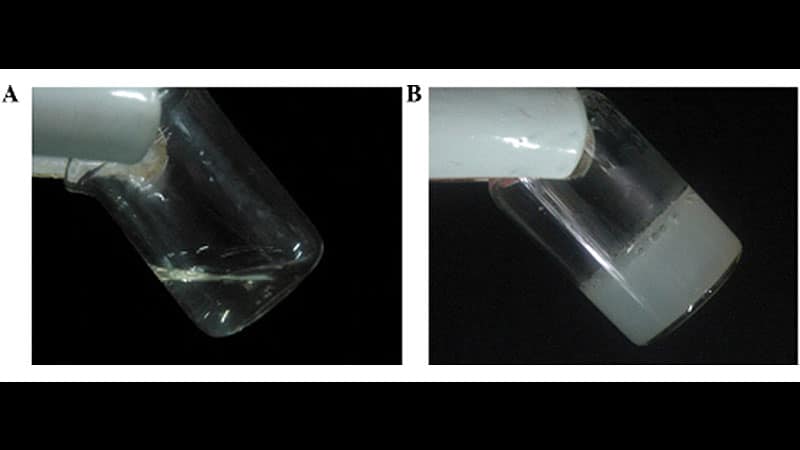The Revolutionary Impact of Hydrogels on Healthcare
Core Concepts
Hydrogels are revolutionizing healthcare by mimicking the human body's architecture, offering new treatment possibilities and enhancing medical technologies.
Abstract
Hydrogels, three-dimensional networks of water-swollen molecules, are reshaping healthcare by providing innovative solutions for drug delivery, tissue regeneration, and human-machine interfaces.
Materials Scientists' Dreams
Scientists aim to replace hard, lifeless materials with hydrogels to mimic biological tissues effectively.
Hydrogels' unique properties allow them to transition between liquid and solid states, making them versatile for various applications.
Hydrogels in Medical Advancements
Hydrogels are soft, pliable, and nontoxic, making them ideal for implants and drug delivery systems.
Researchers are exploring hydrogels for regenerating bones, repairing cartilage, and enhancing joint health.
Future Applications
Hydrogels hold promise for ingestible electronics, smart drug delivery systems, and monitoring devices.
The potential for hydrogels in human-machine interactions, such as brain implants, opens up new possibilities for healthcare.
The Weird World of Hydrogels: How They'll Change Healthcare
Stats
"First described in 1960 by creators of soft contact lenses, these weird, shape-shifting substances are able to morph from liquid to solid to a squishy in-between."
"100,000 papers total published by 2020, and 3,800 already this year alone."
"Human bones are about 25% water, while muscles hover around 70% and the brain is 85%."
Quotes
"We are, essentially, hydrogels." - Benjamin Wiley, PhD
"Because the gel takes months to dissolve, it slowly delivers the drug over time." - Eric Appel, PhD
Key Insights Distilled From
by Lisa Marshal... at www.medscape.com 05-24-2023
http://www.medscape.com/viewarticle/992376
Deeper Inquiries
How might the widespread adoption of hydrogels impact traditional medical practices?
The widespread adoption of hydrogels in medical practices could revolutionize traditional approaches to treatment and healthcare. Hydrogels offer a versatile platform for drug delivery, tissue engineering, and regenerative medicine. By enabling controlled and sustained release of medications, hydrogels could improve patient compliance, reduce the frequency of drug administration, and enhance therapeutic outcomes. Additionally, hydrogels can be tailored to mimic the properties of human tissues, reducing the risk of rejection and improving compatibility with the body. This could lead to more effective treatments for various conditions, including chronic diseases and injuries. Furthermore, the development of hydrogel-based implants and devices could offer less invasive and more personalized solutions for patients, potentially transforming surgical procedures and recovery processes.
What ethical considerations should be addressed regarding the integration of hydrogels in human bodies?
As hydrogels become more integrated into healthcare practices, several ethical considerations need to be addressed. One key concern is the long-term safety and potential risks associated with the use of hydrogels in the human body. Ensuring the biocompatibility and biodegradability of hydrogels is essential to prevent adverse reactions or complications in patients. Additionally, issues related to informed consent, privacy, and data security may arise with the use of hydrogel-based devices that monitor or interact with the body. It is crucial to establish clear guidelines for the ethical development, testing, and implementation of hydrogel technologies to protect patient rights, autonomy, and well-being. Transparency in research, regulatory oversight, and patient education are vital to address these ethical challenges responsibly.
How can the development of hydrogels for healthcare applications influence advancements in other industries?
The development of hydrogels for healthcare applications has the potential to drive advancements in various industries beyond the medical field. The unique properties of hydrogels, such as their flexibility, biocompatibility, and controlled release capabilities, make them attractive for diverse applications. In the pharmaceutical industry, hydrogels could revolutionize drug delivery systems, enabling more efficient and targeted therapies for a wide range of conditions. In the cosmetics and personal care industry, hydrogels are already being used in skincare products for their hydrating and soothing properties. Furthermore, hydrogels could find applications in agriculture, environmental remediation, and even electronics, where their properties can be harnessed for innovative solutions. Collaborations between researchers, engineers, and industry professionals across different sectors can lead to the development of novel products and technologies that leverage the unique benefits of hydrogels.
0
More on Healthcare
